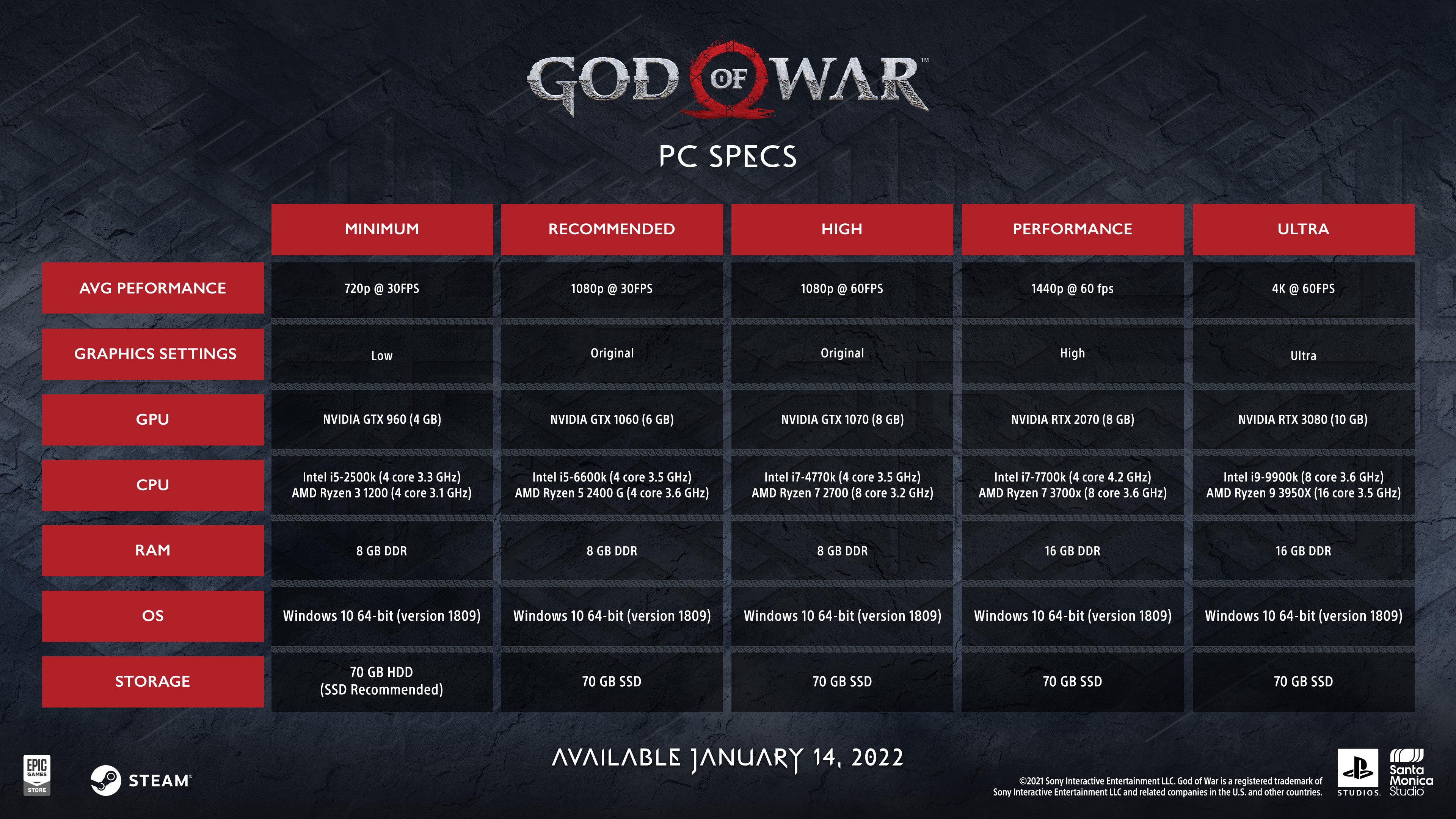Those with Nvidia GPUs are the biggest winners here: DLSS, fresh from being patched into fellow PlayStation alumnus Horizon Zero Dawn, will require a GeForce RTX card in exchange for cranking out extra frames-per-second through AI-powered upscaling and anti-aliasing. God of War will also take advantage of Nvidia Reflex on PC, potentially reducing input lag, though luckily you won’t need the very latest and greatest graphics cards for it. Any Nvidia model from the GTX 900 series onwards can enable Reflex. As for those graphics tweaks, Nvidia’s post lists “higher-resolution shadows, improved screen space reflections, enhanced Ground Truth Ambient Occlusion (GTAO) and Screen Space Directional Occlusion (SSDO) effects, higher detail assets, and higher rendering resolutions” as the PC enhancements to look forward to. I believe these are mostly brand-new changes, too, rather than being carried over from the polished-up PS5 version. Either way, you’ll be able to ogle all that Ground Truth Ambient Occlusion with an uncapped frame rate on PC. There’s also the aforementioned 21:9 support, HDR support on compatible monitors, and “robust” mouse/keyboard and controller input customisation. All in all, it’s not a bad haul of PC features, and DLSS in particular is likely to come in handy should you try running God of War at 4K or ultrawide resolution. Here are those PC system requirements, too: That all looks pretty manageable, with a relatively aged GTX 1060 for the recommended 1080p specs and an RTX 2070 for 60fps at 1440p. We’ll see for ourselves how God of War runs on PC when it releases on January 14th.
